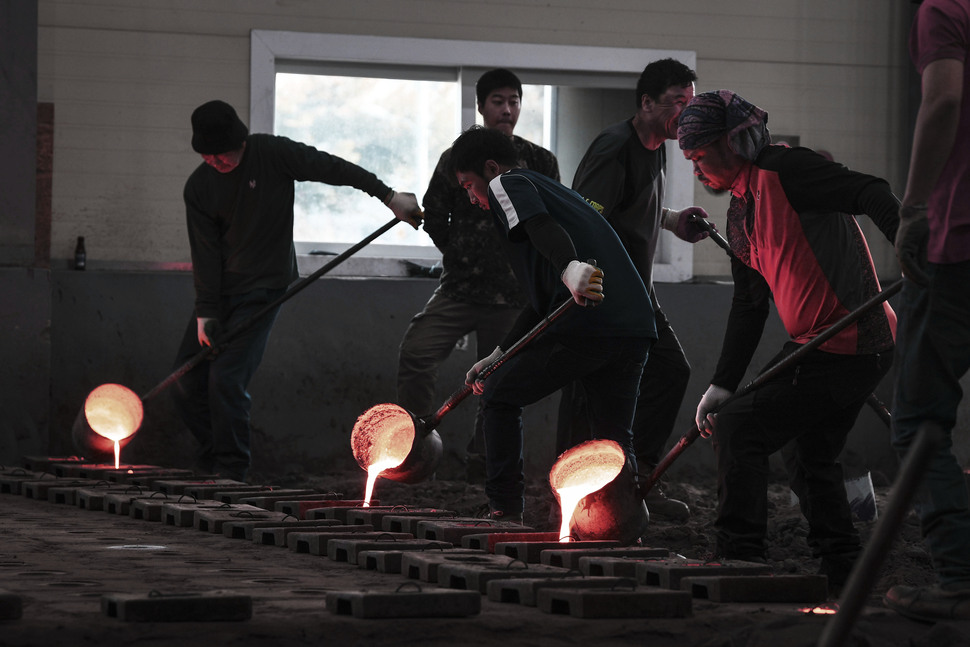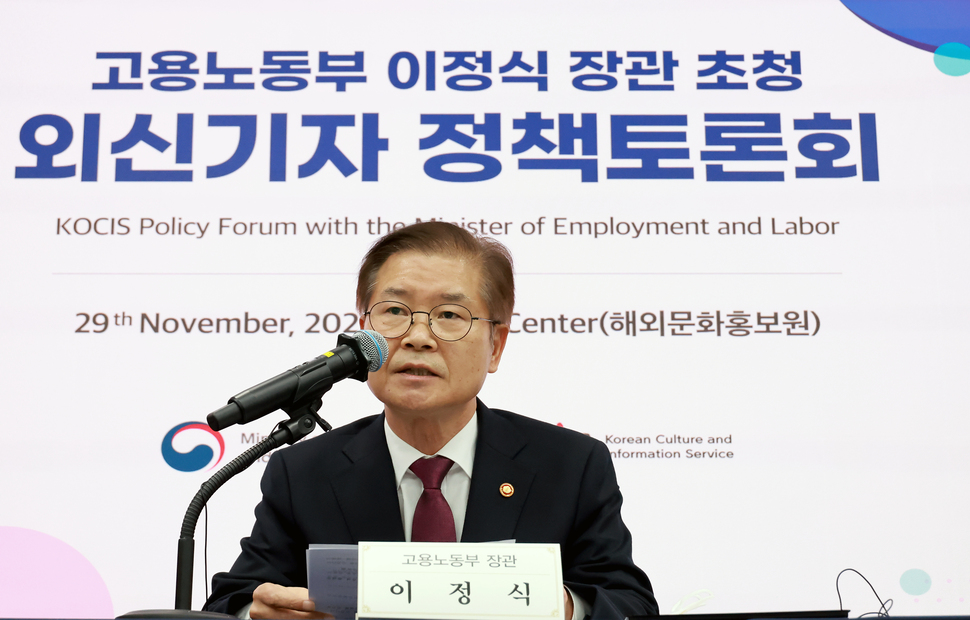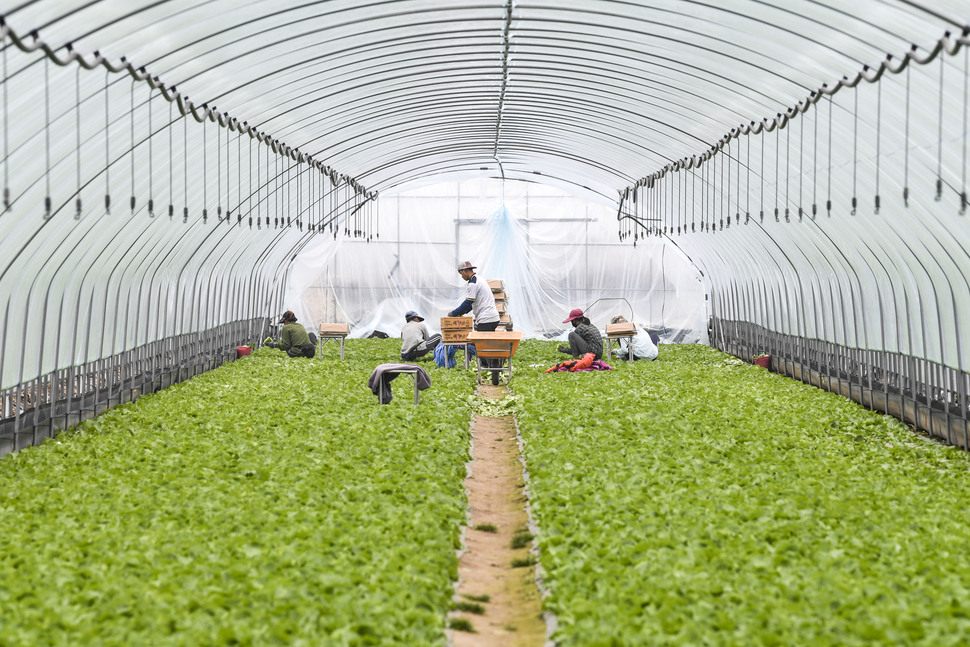[Dec] Korea to invite ‘highest ever’ number of migrant workers in 2023
Date Dec 23, 2022
 Migrant employees work at a casting factory in Paju, Gyeonggi-do Province.
Migrant employees work at a casting factory in Paju, Gyeonggi-do Province.
Korea is experiencing a labor shortage, especially in industries where migrant workers have ended up replacing Koreans, as many sectors of society return to pre-pandemic conditions following a drop in COVID-19 infections.
To address this problem, the government plans to invite a record high number of migrant workers in 2023 to revitalize the country’s economy.
Minister of Employment and Labor Lee Jung-sik said during a conference in Seoul for foreign correspondents on November 29 that his ministry has decided to invite 110,000 foreign workers from 16 countries in 2023. That is the highest number of foreign workers to be invited since the nation introduced the Employment Permit System (EPS) in 2004. The number is also much higher than the 75,701 foreign workers who have been allowed to work here this year.
The annual number of invitees hovered over 50,000 before the COVID-19 pandemic. But it plummeted to 6,688 in 2020 and 10,501 in 2021, mainly because of border restrictions and flight cancelations amid the global health crisis.
The manufacturing sector will get the biggest share of 2023’s 110,000 newly invited workers (75,000 in all), followed by 14,000 for the agricultural and livestock industry and 7,000 for the fishery sector, with the rest allocated to the construction and service sectors.
 Minister of Employment and Labor Lee Jung-sik speaks during a press conference for foreign correspondents at the Korea Press Center in Seoul, November 29.
Minister of Employment and Labor Lee Jung-sik speaks during a press conference for foreign correspondents at the Korea Press Center in Seoul, November 29.
Since 2004, the EPS system has helped companies suffering from labor shortages legally recruit foreign laborers, also referred to as migrant workers. However, under the system, it has not been easy for the country to maintain enough talented migrant workers to keep up with its rapidly changing industrial landscape.
“The ministry will seek to revise the current system to supply workers at the right time and place as industries are quickly changing,” the labor minister said during the press conference.
Lee said the ministry will introduce an independent advisory board of experts who will monitor the country’s industries and pinpoint in real time which sectors are in need of workers.
 Migrant laborers work on a cabbage farm in Chungju, Chungcheongbuk-do Province.
Migrant laborers work on a cabbage farm in Chungju, Chungcheongbuk-do Province.
The minister also promised to ensure that local employers provide quality living quarters and safe workplaces to migrant workers. According to the ministry, employers who want to hire foreign workers should register their living quarters online, so foreign workers can check the condition of the housing to be provided before they agree to travel to Korea.
“Also, employers penalized for an Occupational Safety and Health Act violation that resulted in a foreign worker fatality will be banned from hiring migrant workers for a designated period. And even small farms employing less than five workers will be allowed to hire foreign nationals only when the employer ensures the employees are covered by occupational health and safety insurance,” the minister said.
**If you have any questions about this article, feel free to contact us at kocis@korea.kr.**

The Ministry of Culture, Sports and Tourism's "Korea Here & Now" work can be used under the condition of "Public Nuri Type 1 (Source Indication)."




